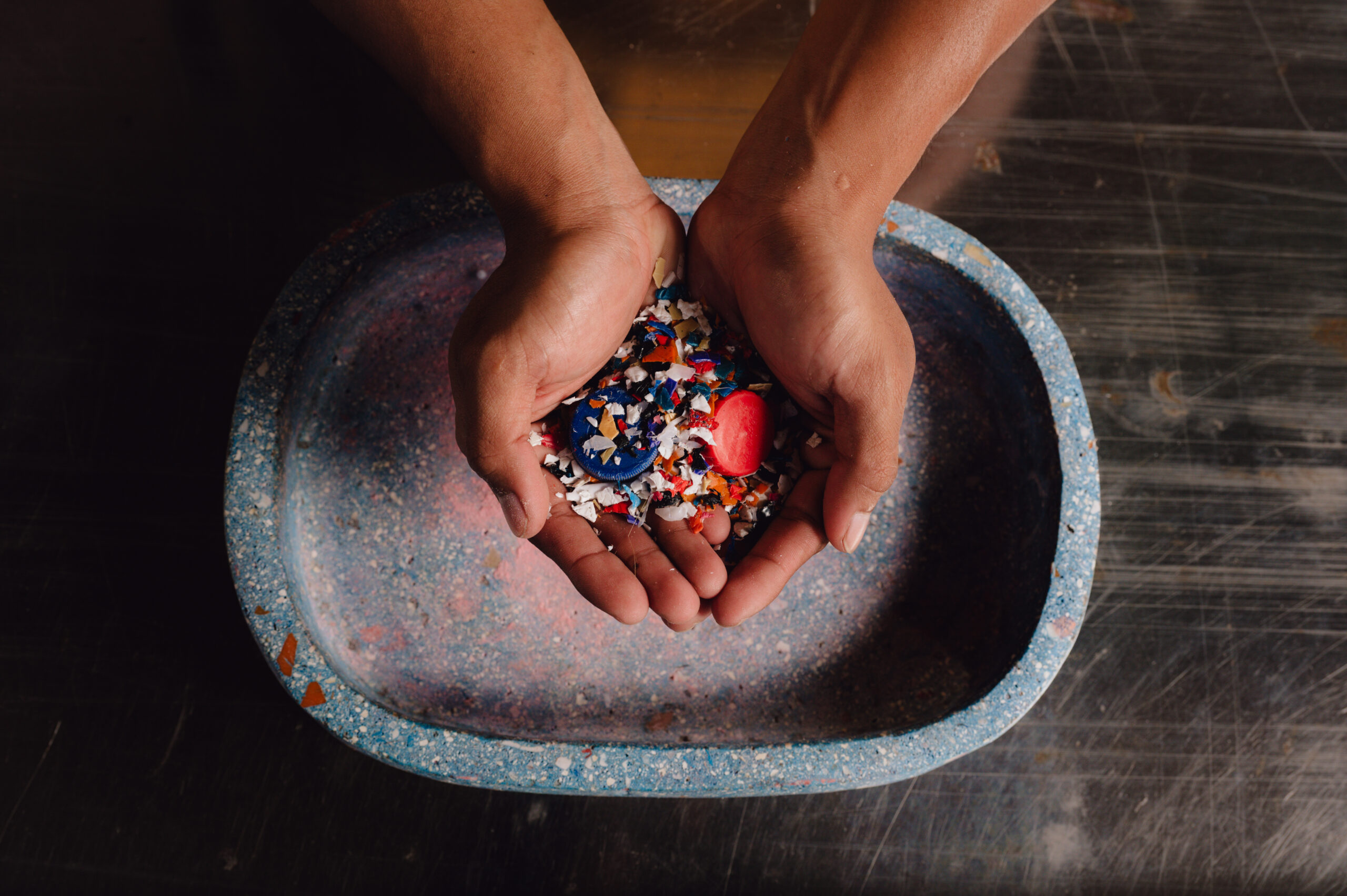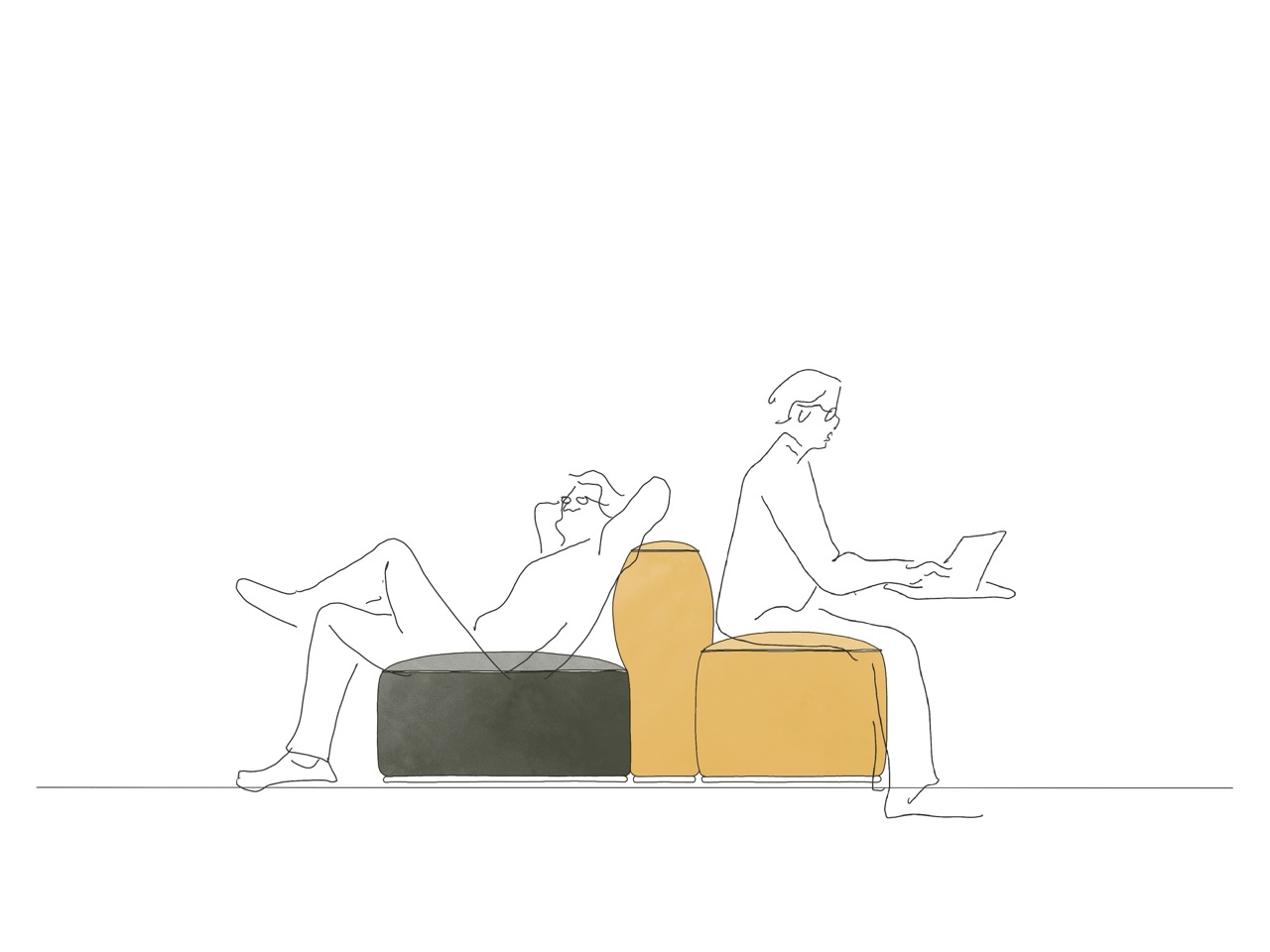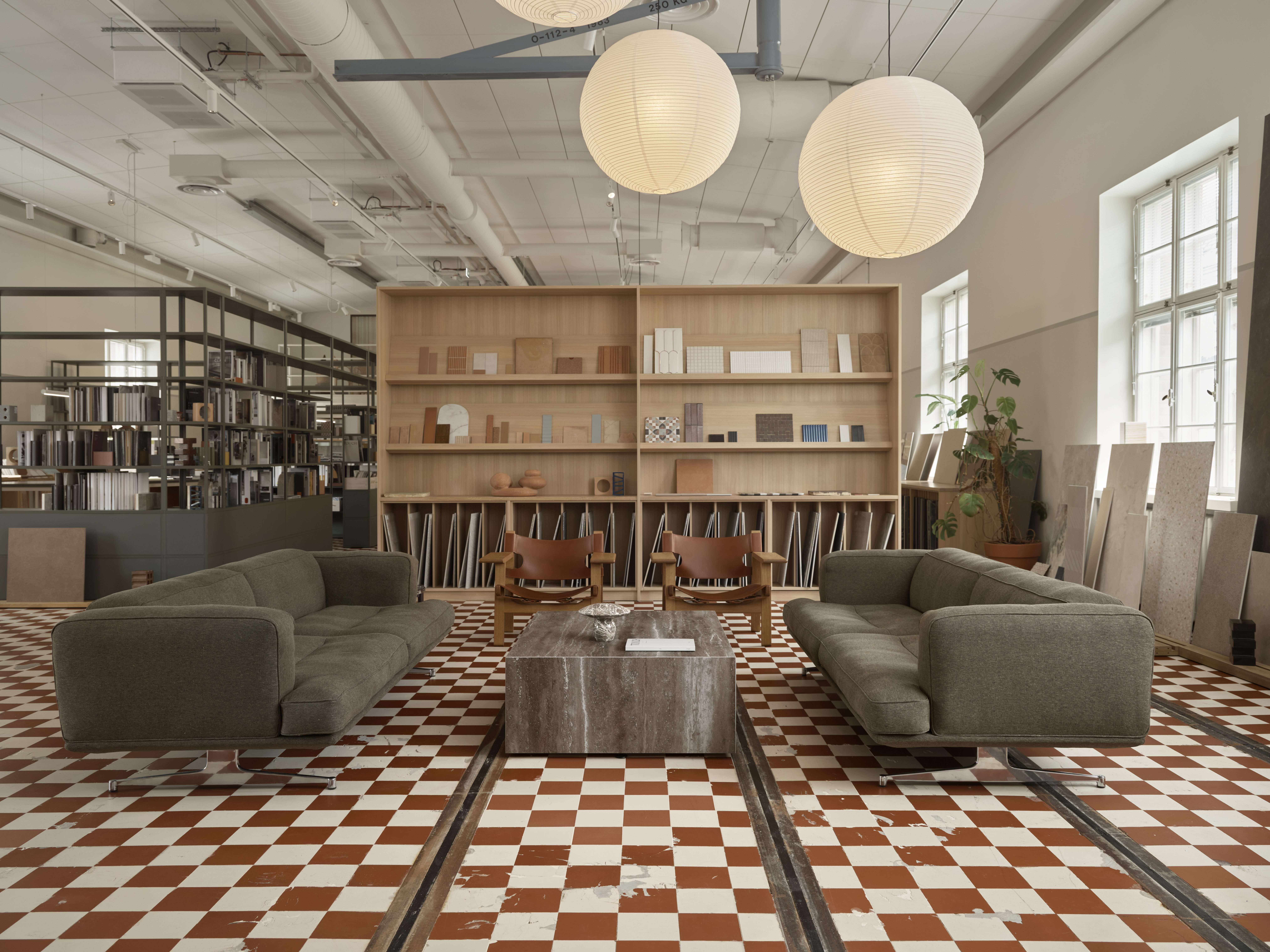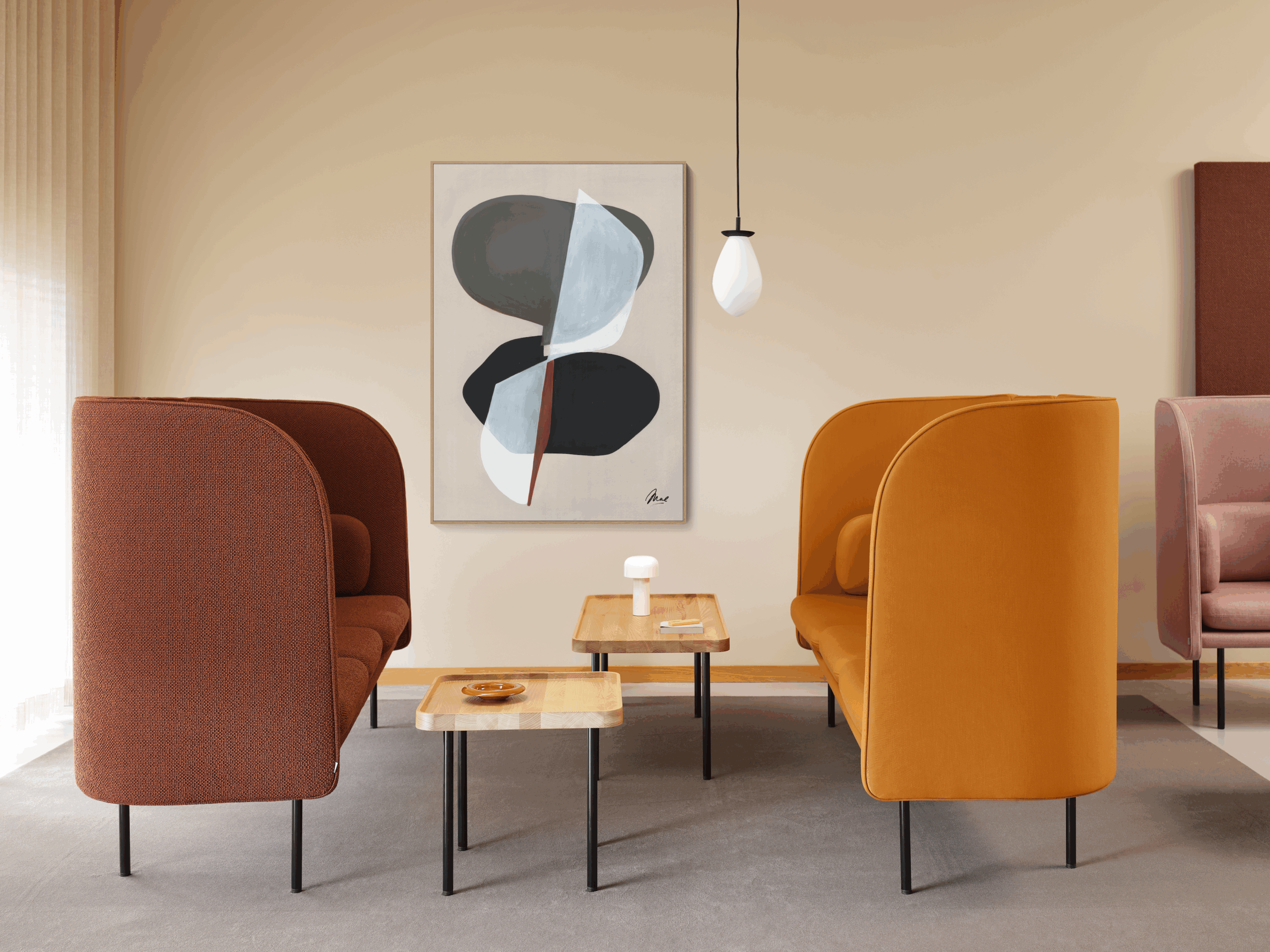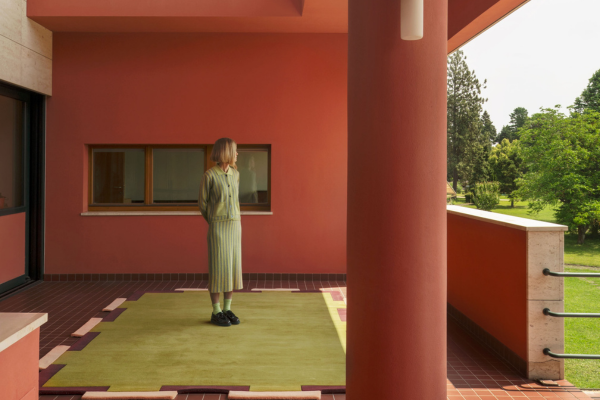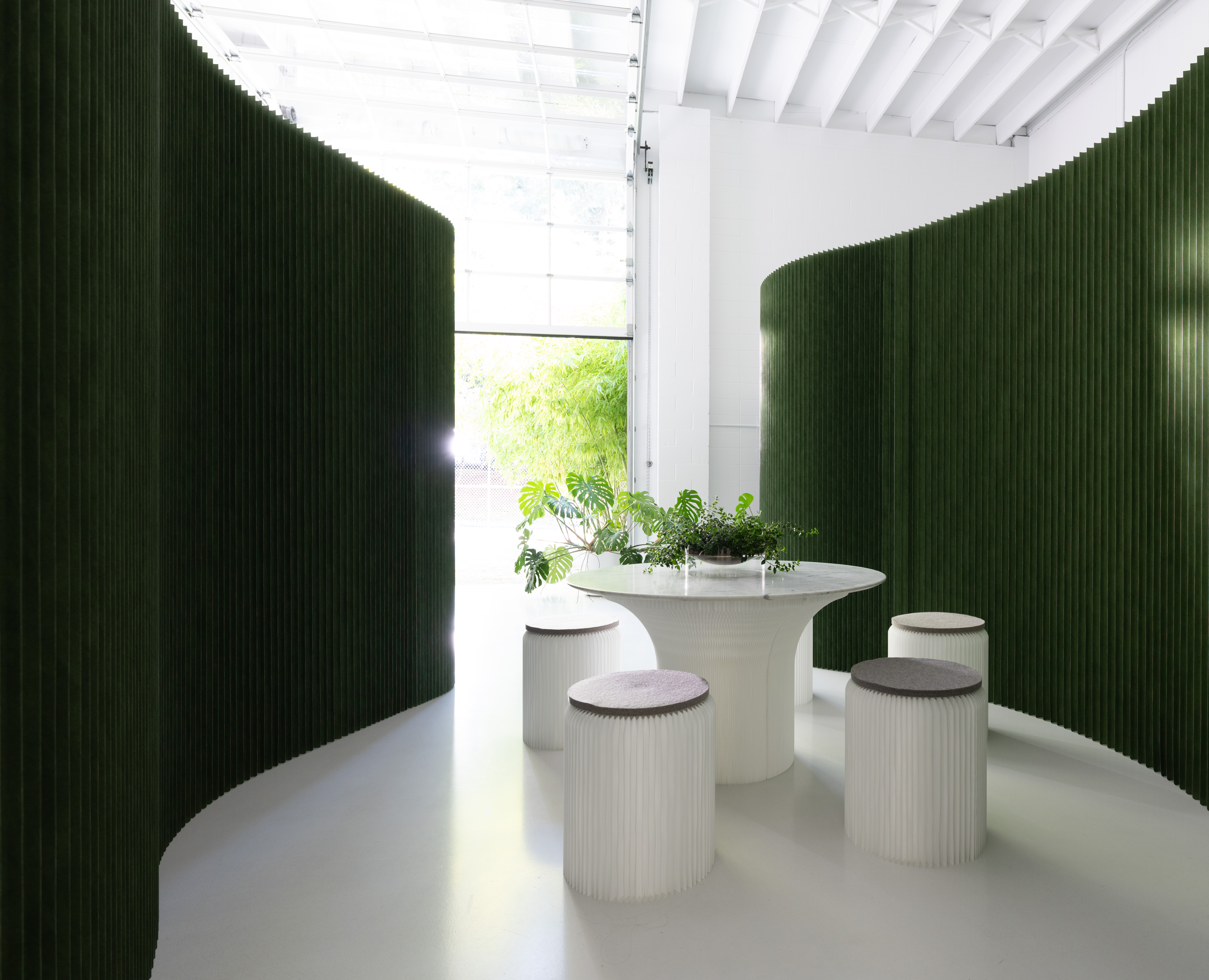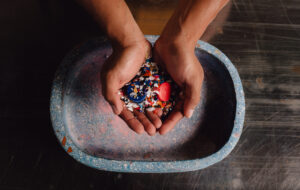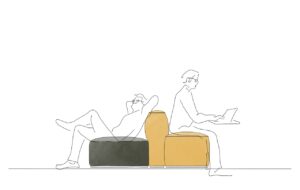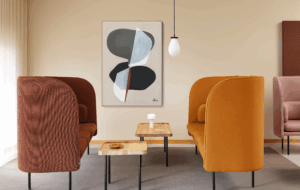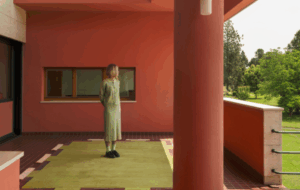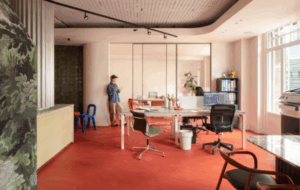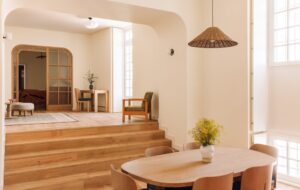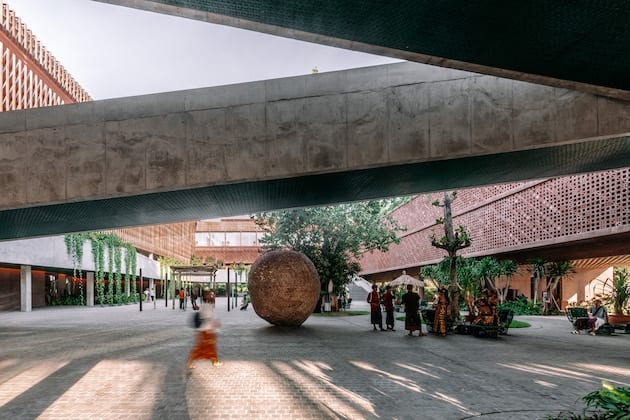 |||
|||
Located in the beach resort of Seminyak in the island’s south, Potato Head Studios aims to be the first hotel on the island to take into account the interests of locals as well as those of visitors. ‘A type of institution,’ explains Desa Potato Head founder Ronald Akili, ‘that mixes public with private, guests with locals, and future thinking with time-honoured craftsmanship.’
 The hotel is raised on pilotis and overlooks a publicly accessible courtyard. Courtesy of OMA. Photo: Kevin Mak
The hotel is raised on pilotis and overlooks a publicly accessible courtyard. Courtesy of OMA. Photo: Kevin Mak
OMA’s design sees guestrooms and function spaces housed within an elevated court, raised on slender concrete pilotis. Below, the ground-floor courtyard aims to serve as a public meeting place and as well as through-way to the beach. It will house regular events, including festival celebrations. The hotel additionally includes a sculpture park, accessible to the public.
OMA’s design draws upon traditional Balinese aesthetics. The building’s facades feature a wooden lattice redolent of local houses, and patterned brickwork inspired by the Tika, a type of divination calendar. Local craftsmen textured some of the concrete walls. Overflowing vegetation, hanging from the raised structures to the square below, evokes Bali’s verdant climate.
 Inside, there are private rooms and exhibition spaces. Courtesy of OMA. Photo: Kevin Mak
Inside, there are private rooms and exhibition spaces. Courtesy of OMA. Photo: Kevin Mak
The project was led by OMA managing partner David Gianotten and project architect Ken Fung. ‘Our design,’ says Gianotten, ‘offers both private guest rooms and facilities, and public spaces to encourage exchange between different kinds of users. It challenges the typical Balinese resort typology that highlights exclusivity.’
Akili chose OMA for their previous work on large-scale cultural institions, such as the Casa da Música in Porto, the Garage Museum in Moscow and the Fondazione Prada in Milan. Gianotten is currently at the helm of the New Museum for Western Australia in Perth, which completes this November.
 Local craftspeople were evolved in texturing some of the building’s concrete walls. Courtesy of OMA. Photo: Kevin Mak
Local craftspeople were evolved in texturing some of the building’s concrete walls. Courtesy of OMA. Photo: Kevin Mak
Tourism is both a major part of the Balinese economy and a subject of some local attention. Since the opening of the Bali Beach Hotel in 1963, its landscapes have been concreted over for numerous luxury resorts, priced beyond the reach of the local population. Hotels consume a significant quantity of Bali’s fresh water reserves. The mass stampede has also been blamed for 2017’s record level of plastic waste around the island’s beaches.
Potato Head Studios, which is now open for bookings and visits, might well represent a stride forward in how tourists and locals share space. ‘At Desa Potato Head,’ says Akili, ‘we’re not trying to change the industry, we want to create an entirely new model for it.’ Only time will tell if it reaches these aims.
Commissioned by Desa Potato Head, the design aims to contribute to tourism while also serving as a space for locals

